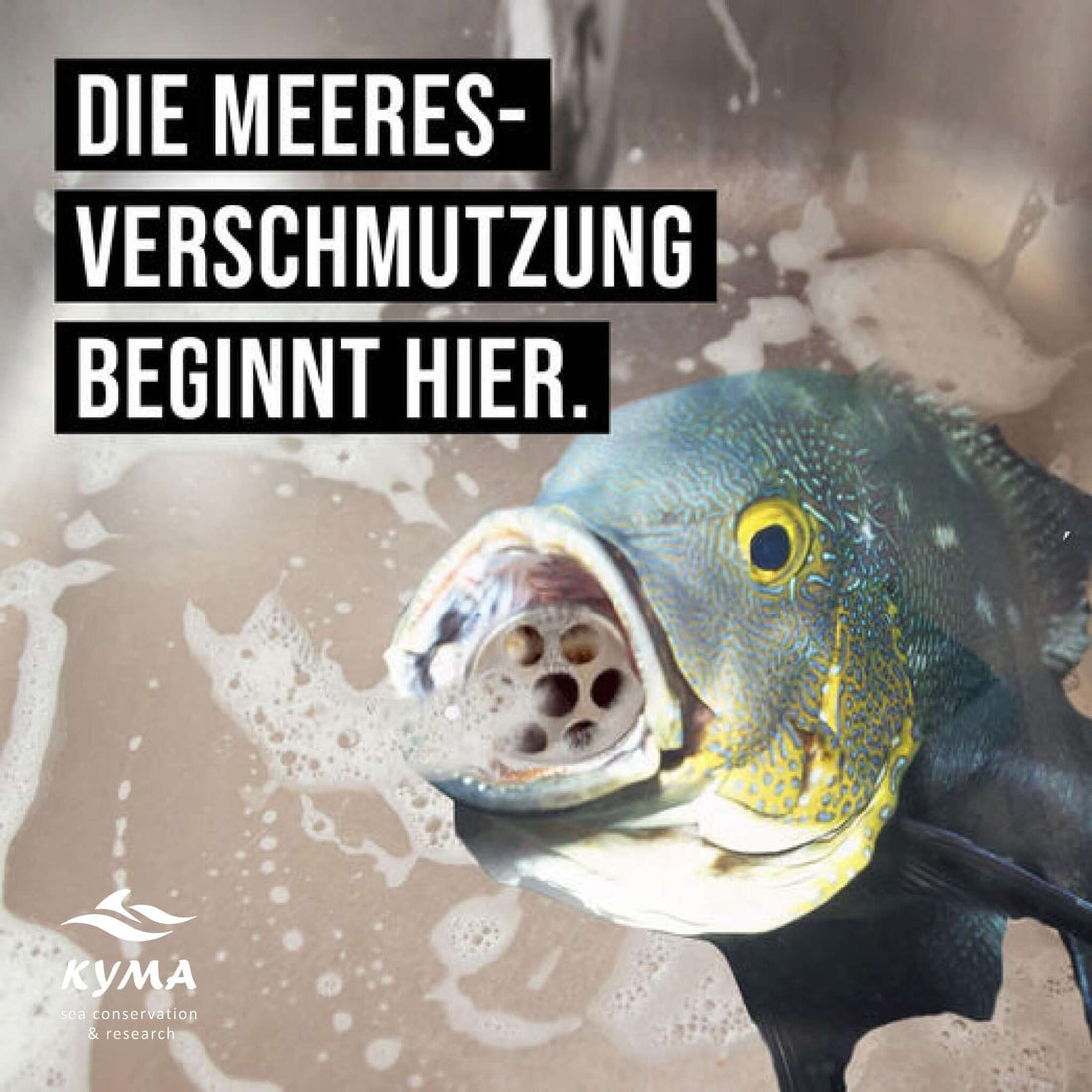
Stop microplastics - save marine animals!
This online petition needs your support:
www.mikroplastik-stoppen.ch
The amount of newly produced plastic is increasing - we are currently at around 400 million tons per year worldwide. Logically, plastic pollution in the oceans has also reached an unimaginable dimension: 9-14 million tons of plastic end up in the oceans worldwide every year. The material is so popular due to its robustness and durability. The downside: science assumes that every plastic product that has ever ended up in nature instead of in the waste disposal system is still there!
A plastic bottle is estimated to take 450 years to decompose in the ocean, and a synthetic fishing line even 600 years. Where "decompose" merely means the reduction to micro (< 5mm) and nanoplastic (< 0.001mm). However, this does not solve the problem at all. On the contrary: microplastics can injure and poison small marine animals because they are a magnet for pollutants. When ingested by animals, microplastics can therefore also be a toxic cocktail.
Plastic waste pollutes all marine life, whether large or small: as macro waste, it is a deadly trap or indigestible food for larger marine animals, covers ecosystems such as mangroves and coral reefs, and as microplastics it affects the base of the food chain, the phytoplankton and zooplankton, and enters various organisms via the food chain. Including us. For example, a person in Europe ingests around 11,000 microplastic particles per year through the consumption of shellfish.
What many people underestimate is that landlocked countries also contribute to plastic pollution in the oceans. Switzerland alone carries several tons of microplastics into the Mediterranean and North Sea every year via the Rhone and Rhine rivers, as local sewage treatment plants filter a lot, but not all, of the wastewater. Even if other countries contribute significantly more to pollution, Switzerland should take responsibility for its actions - for our local environment and the sea. This is why the Swiss marine conservation organization KYMA sea conservation & research has launched the online petition www.mikroplastik-stoppen.chcalling for the regulation of various sources of microplastics. The petition only runs for a short time - so be sure to join and sign now!



